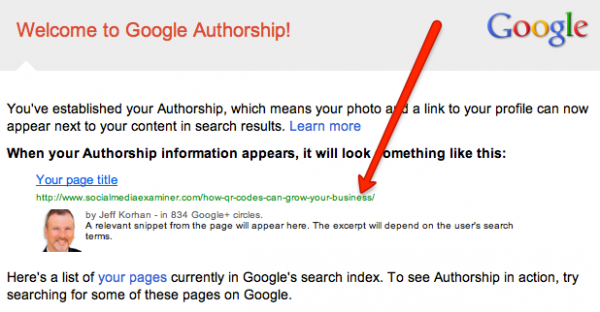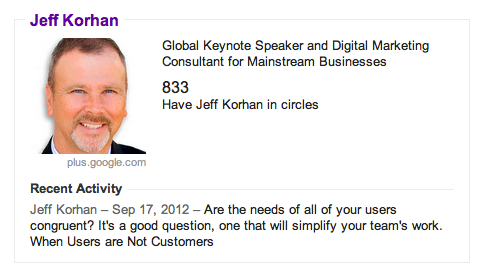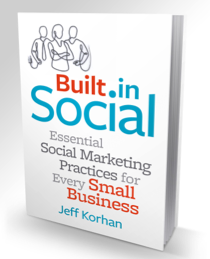One of the best search features to come along in a while for authors of original content is Google Authorship – one that is not particulary well known outside of tech circles.

Google Authorship
About Google Authorship
This week I received an email from Google about Google Authorship that suggests they are hoping to take it mainstream. The image above is a partial snapshot of the email that shows one of the most valuable attributes of Google Authorship.
When regular folks like me write for popular sites such as Social Media Examiner, our content mostly benefits the site. This is fair because they have earned their authority by consistently providing quality content, and that earned platform is why the content achieves massive reach.
Now, however, Google is sharing some of the SEO love by attributing the original content to its author, provided he or she has a Google+ account and has inserted the appropriate authorship code to help Google provide that attribution.
That is very cool for authors and it too is fair. By giving both the platform and the author credit, Google is encouraging the creation of more quality content. This benefits Google’s users, which is all of us who search the web. Everybody wins.
Are you ready to get credit for your original work? Follow this link to learn more about Google Authorship.

More About the Author
More About Authors
As Google authorship continues to become integrated into the fabric of Google search, you will start to see boxes like the one above adjacent to their original content.
It will provide information about the author, the number of people that have them in their Google+ circles (a possible indication of authority), and their most recently authored content.
This is just one more reason for having a solid presence on Google+. If you happen to be an author, this alone should be reason enough.
If you are not an author, you should be, one who uses their experience and expertise to provide relevant solutions for your community of prospects, customers, and influencers.
At the risk of repeating myself, be advised that Google is using Google+ as the linchpin for the majority of its services, some of which are brand new or may not yet exist. Think about that, and whether or not now may be the time for you to get started with Google+.
Having just eclipsed 400,000 million users, Google+ is clearly going to be a game changer for authors and local businesses that want to be findable on the web.
Please know that while setting up Google Authorship is easier than ever, it still takes some patience. For one thing, it takes weeks until you will have evidence that it was installed correctly.
So, work with patience and take notes should you have to go back and try it again.
Are you using Google Authorship to be recognized for your original work?



